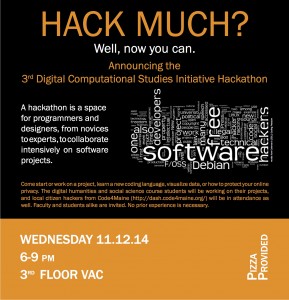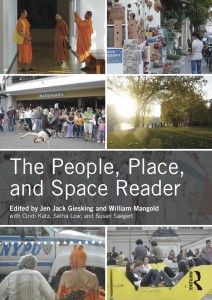In the Digital Image of the City, taught by Jack Gieseking, students were tasked with identifying an issue in the City of Portland related to the topic of housing, infrastructure, or public space. They then conducted qualitative field research and learned the geographic information systems (GIS) open-source platform QGIS. As over half the world’s population now dwells in cities, revolutionary advances in technology such as big data have caused policymakers and activists alike to shift their focus toward a movement of smart urbanism. Smart urbanism includes interventions in urban issues through better uses of technology and data, from gentrification to pollution, access to public spaces to improved walkability. Students then created maps and conducted research to help them devise technological solutions to these issues.
On December 10th, 2014, the students of The Digital Image of the City shared their final smart city solutions for the City of Portland, Maine, which you can read below. Enjoy!

